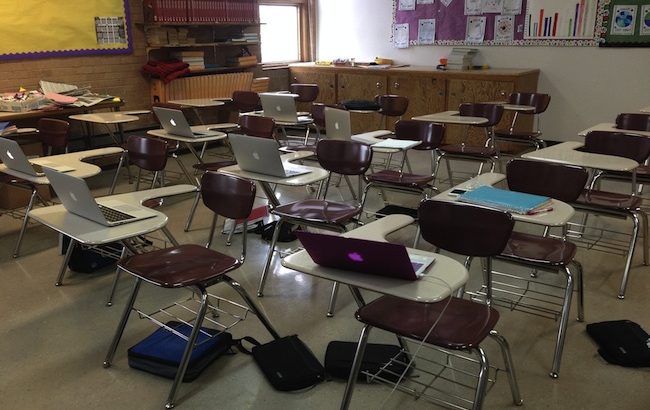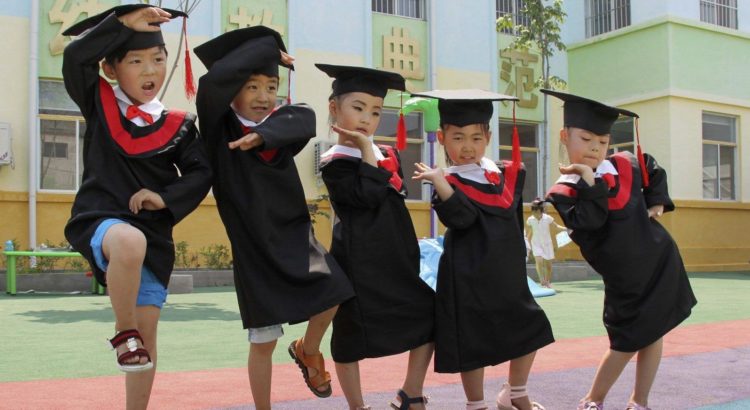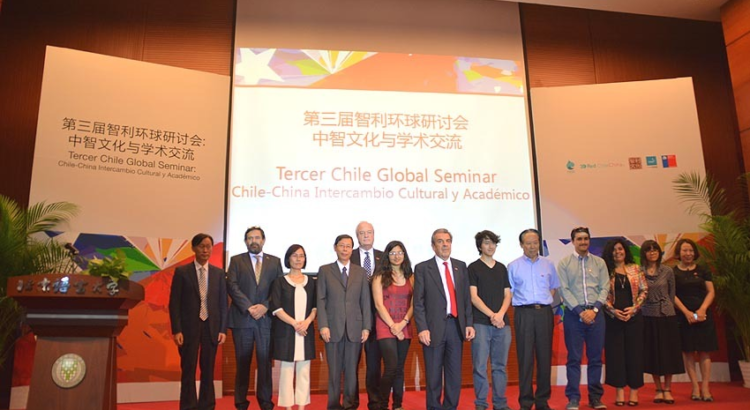Asia/China/Noviembre de 2016/Fuente: Quartz
RESUMEN: China no sólo quiere librar la influencia extranjera de sus negocios, sino que también lo está sacando del salón de clases. La Comisión de Educación Municipal de Shanghai emitió el 19 de octubre un borrador de documento de política (enlace en chino) que obligaría a las escuelas primarias privadas y las escuelas intermedias a utilizar los currículos extranjeros para instituir grandes cambios, en nombre de la «soberanía educativa». «El desarrollo de las escuelas que utilizan los currículos internacionales ha salido de control, y atrajo la atención de las autoridades centrales superiores, [que] pide que las contramedidas lleven a cabo cambios», dice el documento. «Se prohíbe la importación completa de currículos internacionales», añade. El proyecto de propuesta no profundiza en detalles adicionales sobre qué tipos de materiales de enseñanza se verán afectados por las normas, si y cuando se aplican.
China doesn’t just want to rid foreign influence from its businesses—it’s kicking it out of the classroom, too.
The Shanghai Municipal Education Commission on Oct.19 issued a draft policy document (link in Chinese) that would force private elementary schools and middle schools using overseas curriculums to institute big changes, in the name of upholding “education sovereignty.”
“The development of schools using international curriculums has gone out of control, and attracted the attention of upper central authorities, [which] calls for countermeasures to carry out changes,” the document states. “The complete importation of international curriculums is forbidden,” it adds.
The draft proposal does not delve into further specifics regarding what types of teaching materials will be affected by the rules, if and when they are implemented.
However, according to financial media outlet Caixin, one likely target (link in Chinese) would be the International Baccalaureate (IB), whose Primary Years Program for students aged three-to-twelve is required for all Chinese students hoping to attend high school in the UK. It is widely used in Shanghai’s private schools.
The draft law adds that elementary and middle schools must rid themselves of any foreign capital investment—a policy floated as early as 2004 (link in Chinese) in a law pertaining to foreign investment. Schools also must not be named after foreigners.
The proposed changes could throw a wrench into the aspirations of middle-class Chinese parents hoping to send their children to study overseas. As one of the cities with highest number of international schools (link in Chinese) in China, Shanghai is a popular transition destination (link in Chinese) for children looking to go abroad for high school and college.
China has been cracking down on “western values” in higher education since early 2015, with authorities pushing to revive Marxist education in schools (link in Chinese). Late last year, authorities in Beijing curbed programs (paywall) that help prepare children for overseas studies.
Chinese parents can spend between 60,000 yuan to 260,000 yuan ($8,850 to $38,350) on tuition fees for private schools that cater to families looking for Western-style education. Many of them are now worried that the regulations might “make the private schools like the free public ones,” according to Caixin (link in Chinese),
Wang Xiaodong, a commenter on China’s Twitter-esque Weibo platform, criticized the policy as a retrogression. “I used to think that I could put my child in China’s private international schools. Though pricey, it would be worth it if it prevents my child from being brainwashed. Now this single advantage is gone. Is the party pushing everyone to leave the nation?”
Fuente: http://qz.com/821667/a-crackdown-on-international-style-education-in-china-could-make-it-harder-for-students-to-study-abroad/












 Users Today : 7
Users Today : 7 Total Users : 35460216
Total Users : 35460216 Views Today : 10
Views Today : 10 Total views : 3418905
Total views : 3418905